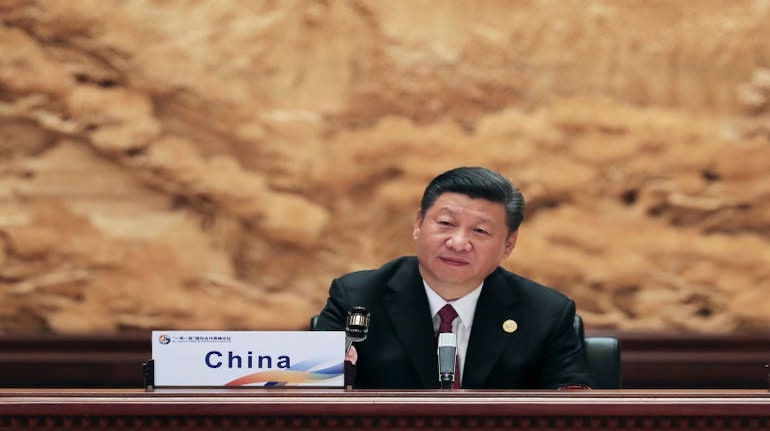



Anubhav SahuMoneycontrol research
With a marathon three-and-a-half-hour-plus speech, President Xi Jinping kickstarted the 19th National People’s Congress in China, an event which also marks the start of his second five-year term as a party leader. Xi’s speech made a pitch for a comprehensive reforms ranging from a supply-side revamp to opening of financial markets, enforcing pollution norms and strengthening state enterprises. While China is mid-way through a course correction, Xi is in favour of “quality” growth as reforms unfold.
Goal “moderately prosperous society” by 2020
Xi reiterated goal for achieving “moderately prosperous society” by 2020 along with an emphasis on structural reforms for almost every facet of the socio-economic set up. The implication here is for the “soft landing” of the Chinese economy along with reforms on both domestic and international fronts.
Chart: China’s investment as a % of GDP is expected to decline further

Source: IMF
While this points to a continued structural rebalancing for the Chinese economy (from investment-led to domestic consumption-led), it brings with it positive takeaways for the world economy as well.
Domestic reforms
Xi laid out that development is “unbalanced and inadequate”, adding that the quality of growth and not the speed was the priority. Global strategists read this as a sub-7% GDP growth rate for the medium term.
To defend against systemic risks, Xi talks about strengthening of SOEs (state owned enterprises). Along with this, he mentioned the need for industrial innovation, opening of the services sector and further lowering of barriers for foreign businesses. He saw the need to caution on speculative activity in the housing market, hinting at some policy steps which could ease the systemic risk of a housing bubble. At the same time, he reasserted his priority of “zero tolerance” for corruption.
Supply-side reforms to bring positive context for the commodities, chemicals
In his speech, Xi emphasised on the sustenance of supply-side reforms, which include reducing overcapacity in commodities sector, trimming housing inventory, and deleveraging. Along with this, his emphasis for controls over environmental issues means an ongoing demand-supply rebalancing in the global commodities can continue.
Further, specific segments in the industrial and chemical businesses in China can witness continued supply cut down due to non-adherence to pollution norms.
In this context, investors in India can continue to keep an eye on companies operating in steel, aluminum, dyes, pigments, graphite electrodes and plastic processing industries.
Currency reforms to unfold
Xi also mentioned about the reforms in financial markets eyeing interest-rate and currency reforms. Market participants expect new announcements in the direction of yuan internationalization after the NPC.
Overall, the inauguration speech lays down a broad context and direction for the Chinese economic growth trajectory.
This is important in global context, as a reform-oriented China with a stable growth trajectory takes away the fear that led to stock market ructions in 2015-16. A structural rebalancing in China, which is expected to contribute 1/4th of global GDP growth in 2018, acts as a balancing act for global economic growth.
Discover the latest Business News, Sensex, and Nifty updates. Obtain Personal Finance insights, tax queries, and expert opinions on Moneycontrol or download the Moneycontrol App to stay updated!
Find the best of Al News in one place, specially curated for you every weekend.
Stay on top of the latest tech trends and biggest startup news.